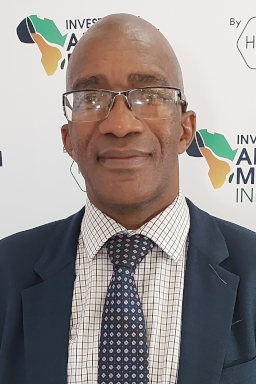 Okavango Diamond Company (ODC), a rough diamond marketing company that is wholly owned by the Botswana government, suspended diamond sales in November and December 2023 due to the prevailing poor market conditions at that time.
Okavango Diamond Company (ODC), a rough diamond marketing company that is wholly owned by the Botswana government, suspended diamond sales in November and December 2023 due to the prevailing poor market conditions at that time.
The company’s temporary suspension of diamond sales was also in response to an oversupply of diamonds.
ODC managing director Mmetla Masire told Rough&Polished’s Mathew Nyaungwa in an exclusive interview that there is still a lot of inventory and there is a need for all players in the diamond industry to trade responsibly and avoid oversupplying the market.
He said while the market is better than it was in the last two years, it has yet to fully recover.
Meanwhile, Masire said that the measures introduced by the G7 last month in its bid to block Russian diamonds from entering their countries will also affect other diamond-producing countries.
He said the negative effects include rising costs of transporting diamonds, delays in reaching the final destination and backlogs at the node.
Below are excerpts from the interview.
What made ODC suspend diamond sales last year?
The decision to suspend diamond sales last year was prompted by the fact that there was an oversupply of diamonds in the market across the diamond pipeline.
It was pointless for ODC to supply an already oversupplied market and in our view, this action was the right one and was not only implemented by ODC. After this, we saw an improvement in the market and we are of the view that holding back on sales positively contributed to the small recovery that we saw in December 2023 and January 2024.
Our decision-making process regarding diamond inventory management is underpinned by a prudent strategy focused on financial stability, cost-effectiveness, and resource optimisation. This approach reflects our commitment to cautious and well-considered inventory management practices, which are vital for navigating the complexities of the market.
Have these factors changed to date?
We acknowledge that there have been notable shifts in the factors influencing the diamond market landscape. With the global economy showing signs of improvement, we observe optimistic indications of recovery. Enhanced economic conditions, coupled with the resurgence of consumer confidence.
However, there is still a lot of inventory in the diamond value chain and the lab-grown diamonds (LGD) remain a threat. We need to all be responsible and not oversupply the market and navigate cautiously.
The market has not recovered but rather it is on the recovery road thus it needs to be treated as a delicate market that is better than what we have experienced in the last two years.
When did you resume diamond sales?
The decision to temporarily suspend diamond sales was primarily influenced by market conditions during the financial year 2023/2024. Specifically, we opted to cancel sales for November and December 2023 due to the prevailing poor market conditions at that time.
What is your reaction to measures introduced by G7?
Our stance on the measures introduced by the G7 is one of proactive engagement and commitment to the highest standards of integrity and ethical sourcing.
We view the introduction of the G7 Certification as an opportunity to reinforce our dedication to responsible diamond production and transparent supply chains.
However, we are concerned that the measures and how they are implemented would have negative unintended consequences that would hurt the industry, including the diamond producer countries. ODC, Botswana and other producer countries will be negatively affected.
How will the measures negatively affect the industry?
These measures are likely to increase the costs of transporting diamonds and delays in reaching the final destination as they have to be sent to a node and also they will most probably be backlogs at the node, etc.
The customers will become frustrated and may start looking at alternative supplies that are not subjected to G7 measures. There is also a concern regarding technology maturity and availability to meet the needs of the industry and those of G7.
ODC is working closely with the Botswana Government in engaging with G7 to try and address some of the concerns. We must be consistent and aligned with our government and other key stakeholders in the industry.
How should a diamond’s country of origin be checked and where should it be done?
We are of the view that several processes need to be considered and if necessary beefed up to meet the requirements of G7 and verification of the diamond origin.
These solutions would include technology, several are now available, grading labs such as GIA and the Kimberly Process Certification Scheme (KPCS) even if it is enhanced to meet G7 requirements.
The best place to conduct the checks and verification is at the source or as close to the source as possible. This means that the Producer countries would be the best place to check.
Mathew Nyaungwa, Editor in Chief of the African Bureau, Rough&Polished
